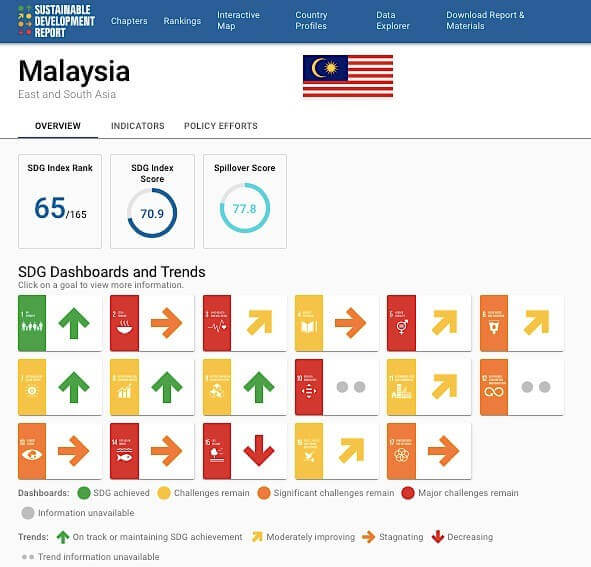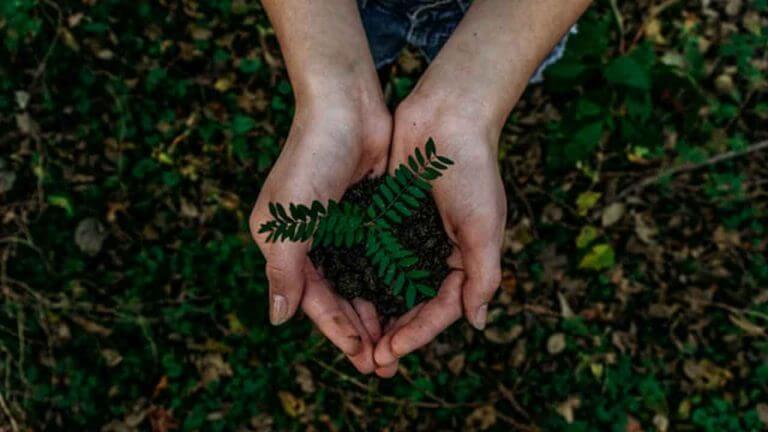Source of Image : Unsplash – https://unsplash.com/photos/x8ZStukS2PM
By Mohd Noor Musa, Research Analyst (Social), Institut Masa Depan Malaysia

Source: https://dashboards.sdgindex.org/profiles/malaysia
2030 is less than a decade away. There is certainly much progress that Malaysia has made in recent years that the country should be proud of, upholding the principle of “leaving no one behind” and making sure that the Shared Prosperity Vision (SPV) and Sustainable Development Goals (SDG) are more relevant and known to the rakyat.
The Shared Prosperity Vision is an approach taken by Malaysia to localise the SDG set by the United Nations and adopted by all member states – that is to achieve inclusive, sustainable growth along with fair and equitable distribution across all levels by 2030 without leaving no one behind. This includes alleviating poverty and reducing socio-economic gaps by implementing more bottom-up approaches and targeted programmes at every level of society. This cannot be achieved without commitment, understanding and literacy of the local sustainability issues faced by societies highlighted in the SPV.
Sustainability literacy is about demonstrating one’s awareness of sustainability issues and its complex relationships (i.e. economy, environment & society) and having the necessary information, knowledge, skills and mindsets that allow individuals the ability to commit, formulate and communicate sustainable solutions, vis-à-vis economy, social or environment being faced today with multidisciplinary approaches.
This is what Institut Masa Depan Malaysia (MASA) and All-Party Parliamentary Group Malaysia on Sustainable Development Goals (APPGM-SDG) tried to achieve – by organising a 2 days Consultation on Malaysia’s 2nd Voluntary National Review (VNR) Report (2021) on SDG Implementation Progress from 22-23 July 2021. The consultation is in partnership with the Economic Planning Unit (EPU), the Malaysian CSO-SDG Alliance and the UN Malaysia Country Team, aimed to provide a platform for the stakeholders, i.e. government, civil societies and private sectors opportunities to understand, review and comment on the processes Malaysia has taken on the SDG implementation; to enhance community interest and participation in localising the SDGs especially at district and local authority levels; and to promote awareness of the sustainability issues among the stakeholders.
According to The Sustainable Development Report 2021 which has just been released, Malaysia stands at number 65 of 165 countries with the SDG Index at 70.9 percent while the Spillover Index at 77.8 percent. The SDG Index measures a country’s total progress towards achieving all 17 SDGs. The score can be interpreted as a percentage of SDG achievement (a score of 100 indicates that all SDGs have been achieved). The Spillover Index however, assesses spillovers along three dimensions, i.e. environmental and social impacts embodied into trade, economy and finance, and security. A higher score means that a country causes more positive and fewer negative spillover effects.
According to this year’s report, Malaysia has successfully achieved one goal, namely SDG1 (no poverty); 3 goals are on track to be achieved, namely SDG7 (affordable and clean energy), SDG8 (decent work and economic growth), and SDG9 (industry, innovation and infrastructure); 5 goals have a moderate score although improving but insufficient to attain goal, namely SDG3 (good health and well-being), SDG5 (gender equality), SDG6 (clean water and sanitation), SDG11 (sustainable cities and communities), and SDG16 (peace, justice and strong institutions); 5 goals see a stagnating score, namely SDG2 (zero hunger), SDG4 (quality education), SDG13 (climate action), SDG14 (life below water), and SDG17 (partnerships for the goals); 1 goal sees the decreasing score, namely SDG15 (life on land); and 2 goals have no data available for analysis, namely SDG10 (reduced inequalities), and SDG12 (responsible consumption and production).
Also, according to the report, of the total 17 SDGs, Malaysia has achieved one SDG (SDG1), faces challenges for six SDGs (SDG4, SDG7, SDG8, SDG9, SDG11, and SDG16); faces significant challenges for four SDGs (SDG6, SDG12, SDG13, and SDG17); and faces major challenges for the remaining six SDGs (SDG2, SDG3, SDG5, SDG10, SDG14, and SDG15). All these challenges require sustainability literacy and engagement amongst the stakeholders in formulating more robust solutions and policy directions for Malaysia in the future, keeping in mind the noble goals of our SPV.
Through various approaches and/or strategies such as the VNR Consultation co-organised by Institut MASA & APPGM-SDG, it offers the government, civil societies and policymakers opportunities to talk to each other to identify areas for improvement and to highlight sustainability issues faced by the societies.
By continuous engagements, dialogues and consultations guided by the spirit of togetherness and both SDG and SPV’s shared mission of leaving no one behind, we could identify our gaps and challenges, increase our literacy on sustainability issues, develop a more comprehensive analysis of our major achievements, and together restructure our development priorities towards a prosperous, fair, equitable and inclusive manner, as envisioned by the SPV.




